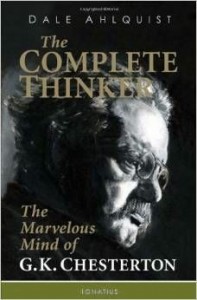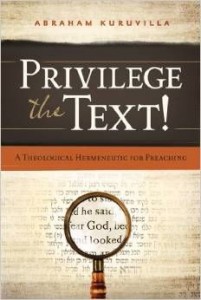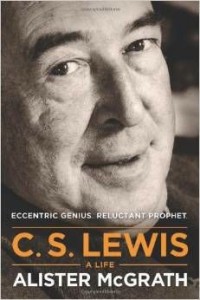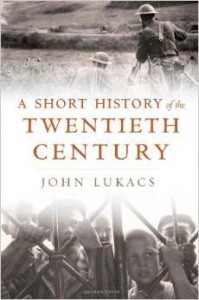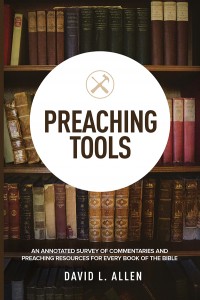
Summer Reading for Preachers
by Steven Smith on June 20, 2014 in Preaching
Every summer I look forward to Al Mohler’s summer reading list. It always provides me with something to read I would not think about otherwise. In the same vein, here is a short reading list of five books (plus one bonus) specifically designed for preachers. A few thoughts about the list are in order.
First, this list pitches to what is important, not necessarily popular. A pastor’s inbox is flooded with requests for him to try the latest book. I get it, but enough already. While all these books are relatively new, I believe they still will stand the test of time.
Second, this is for the pastor who perhaps enjoyed seminary and wants to keep up with current thought, but does not have time to follow all the conversations. There is only one preaching book proper on the list. It’s not that there aren’t anymore, there are. But as a guy who would like to write preaching books, I admit that books about preaching are rarely engaging and often even predictable. I hate to be uncharitable or self-deprecating, but it’s true.
Third, there is at least one good diversion included. We need diversions. There’s no question about that. However, among other things a life is shaped by the diversions one chooses.
The choices below are volumes I recently have read, or plan to read this summer. These are not formal book reviews, but rather a short explanation for why the book is worth the time. We do not have time to read good books; only the best books. The goal of this is to help you accomplish that.
The Complete Thinker: The Marvelous Mind of G.K. Chesterton
G.K. Chesterton is one of the most beloved Christian writers. His sense of irony is beyond compare. Chesterton was a gifted author who, upon setting out to discover what he believed, found that he was orthodox. So, what you get in his Everlasting Man and landmark Orthodoxy are robust apologetics. However, to be honest, I am reading Chesterton for pleasure. The content of the prose is excellent, but he is not be read purely academically.
The problem with Chesterton is that he is an enormous literary presence. Where do you begin? In The Complete Thinker, Dale Ahlquist has done us a remarkable favor by taking Chesterton’s perspective on subjects, categorizing them topically, and dispensing them in 17 relatively short chapters. You can jump anywhere in the text with benefit. I found chapter 7, “Old and New,” of particular interest and benefit.
Privilege the Text: A Theological Hermeneutic for Preaching
If you are going to read on the subject of preaching this summer, this is an important read. Kuruvilla, depending on the work of Ricour, encourages the preacher not to look just behind the text, (i.e. a sermon filled with cultural background or biblical theology exclusively); nor to look exclusively in the text, (i.e. a sermon filled with exegetical study only); but to look principally in front of the text. Thus a sermon answers the question, Based on the meaning of this text what are the implications of the meaning on the modern listener? For this encouragement alone it is worth the read.
Toward this end, Kuruvilla cautions those who advance a biblical theology. Personally, I benefit homiletically from the perspective of biblical theology.* And I think there is a hint of straw man in some of his arguments. However, I also think this is a needed encouragement for those who would take a text and go to the Gospel without ever dealing with the text itself! In this I agree: we must privilege the text. The book is necessarily academic and assumes you have a working knowledge of preaching that considers a historical redemptive, or salvation history approach. If you are not in that conversation, go ahead and dive in to this book. It surveys the landscape for you even though he is critical of said landscape.
*If you wanted to read a foil to Kuruvilla, pick up Jim Hamilton’s wonderful short volume, What is Biblical Theology?: A Guide to the Bible’s Stories, Symbolism, and Pattern. This is a helpful introduction to biblical theology.
C.S. Lewis – A Life: Eccentric Genius. Reluctant Prophet
Granted there is so much available on Lewis. The significance of McGrath’s contribution is the recent acquisition of Lewis’ correspondence, previously unavailable. Lewis’ correspondence sheds light on his more intimate personal struggles, as well as his thoughts, and absence of thoughts, on the war. It is also interesting to learn that after Lewis became a believer he stopped journaling as extensively as he had previously. Thus, much of his post-conversion life can be gleaned from his correspondence.
A Short History of the Twentieth Century
The ability to grasp an entire century in 212 pages is a remarkable feat. It is helpful when one book can give you the landscape from 40,000 feet, and this is such a book. Lukacs does a fine job showing the European and American centers of the 20th century, but he does not stay there. When reading this short history, especially the section on South America, one can’t help but think of its implications for contemporary missions efforts.
At times you may feel like Lukacs assumes you know a little more than you do, especially if you were born in the later part of the 20th century. Also, the book can be a little dry. Press on, however, for he does not waste a sentence and, in that way, shows mastery of the subject. The broad scope of the 20th century is critical information for anyone preaching in the 21st. This short volume is an accessible way to get your mind around it.
Preaching Tools: An Annotated Survey of Commentaries and Preaching Resources for Every Book of the Bible
This book does not qualify to be on this list in so much as it is not something you want to take to the beach. However, this is a resource that every preacher needs in his tool box. Hardly does a few days pass before I get an email from a preaching friend who would like a recommendation for some good commentaries. Allen covers exegetical commentaries, Homiletical commentaries, devotional commentaries, and classic sermons for each book of the Bible.
You can see more information here with a sample download. The free pdf will be available soon.
Good Night, Good Night Construction Site
Sherri Duskey Rinker and Tom Lichtenheld
This is one of the best secular children’s books I’ve read. This is the story of a construction site going to bed, and it’s got it all: excavator, bulldozer (who sleeps with a blanky), crane, cement mixer, and others. If you have a small boy fascinated with large trucks, it’s a must read. I imagine I’ve read it about 20 times to my 2-year-old son and, if God is so gracious, I will read it 20 more before summer ends.
Previous Post
« A Question for Ronnie FloydNext Post
The Colonization of the Call: An encouragement for those residing in their call »





